|
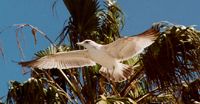 Jackie
Alan Giuliano, Ph.D.
is a father, activist, educator, and deep ecologist. Prior to
entering the field of education, he studied the planets in our
Solar System from one end to the other during a 20-year career
in the U.S. robotic space program. He discovered that there
may not be a single drop of available fresh water or a breath
of fresh air other than on Earth. Humans may one day live on
other worlds, but the Earth will be always be our only true
home. Jackie
Alan Giuliano, Ph.D.
is a father, activist, educator, and deep ecologist. Prior to
entering the field of education, he studied the planets in our
Solar System from one end to the other during a 20-year career
in the U.S. robotic space program. He discovered that there
may not be a single drop of available fresh water or a breath
of fresh air other than on Earth. Humans may one day live on
other worlds, but the Earth will be always be our only true
home.
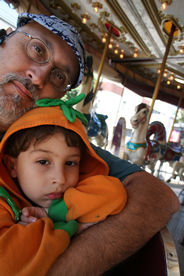 From
the age of five, he was excited about the heavens above and
went on to study astronomy at the University of Southern California.
After graduation, he got a job with the Jet
Propulsion Laboratory on Project
Voyager, a grand NASA mission to explore Jupiter, Saturn,
Uranus and Neptune with two spacecraft. It appeared that dreams
were about to come true. From
the age of five, he was excited about the heavens above and
went on to study astronomy at the University of Southern California.
After graduation, he got a job with the Jet
Propulsion Laboratory on Project
Voyager, a grand NASA mission to explore Jupiter, Saturn,
Uranus and Neptune with two spacecraft. It appeared that dreams
were about to come true.
But
a few years later, while on vacation in Yosemite
National Park, Jackie somehow woke up to the realization
that he had spent little time in his life contemplating the
wonders of planet Earth. Upon returning home, he began studying
about how the Earth worked and discovered that what little he
knew about pollution, toxic wastes, and cruelty to our fellow
creatures had been grossly underplayed to him in his reading
and his studies. He found out that the Earth´s life support
systems were headed for disaster.
After
obtaining a Masters degree in Environmental Studies, Jackie
continued to search for the right path for many more years.
He began teaching adults returning to school in the late 1980´s
and discovered that the knowledge he had about the toll our
lifestyles were taking on the Earth was hard for folks to swallow.
Looking for a way to share the awareness of the terrible harm
we were doing the Earth to his students, he learned that many
scholars felt that the profound disconnection from the natural
world that modern city dwellers experience was a root cause
for our terrible environmental and social abuses. Studying these
phenomena further became the subject of Jackie´s doctoral program
and his focus on the fields of ecopsychology,
ecofeminism, deep ecology, and bioregionalism, among others.
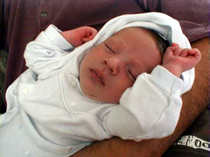 With
this unique collection of tools, Jackie began speaking to students,
educators, and the public about the consequences of our separation
from the cycles of the Earth. He developed the Deep
Teaching Process, a collection of methods for teaching
students to notice the powerful connections between the environment
and people. With
this unique collection of tools, Jackie began speaking to students,
educators, and the public about the consequences of our separation
from the cycles of the Earth. He developed the Deep
Teaching Process, a collection of methods for teaching
students to notice the powerful connections between the environment
and people.
He
has spent the last decade working as an environmental educator
to reverse the separation from the natural world that technology
promotes. For seven years, he wrote a weekly column on the Internet
called “Healing Our World” for the Environment
News Service. Each week, he addressed environmental issues
vital to our survival.
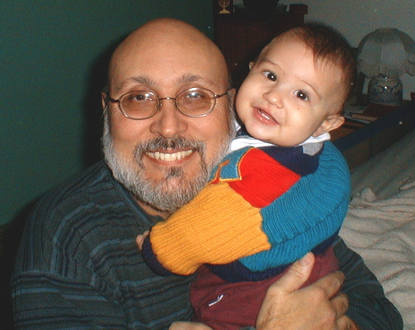 His
book, Healing
Our World: A Journey from the Darkness into the Light,
was born from that article series. Readers from all over the
world write to him about how the commentaries have affected
their lives. His
book, Healing
Our World: A Journey from the Darkness into the Light,
was born from that article series. Readers from all over the
world write to him about how the commentaries have affected
their lives.
Continuing
to work for NASA/JPL until 1998, Jackie led the development
of teacher training programs and student workshops in space
and Earth science education. He has trained many business leaders,
consulted to numerous organizations, and instructed educators
in techniques of teaching critical thinking and learning skills.
Jackie has lectured widely including presenting workshops at
the International
Conference on Critical Thinking and Educational Reform at
Sonoma State University, California.
Jackie
maintains a comprehensive website
of his teachings and a complete archive
of over 275 of his weekly commentaries.
He
holds a Ph.D. in Environmental Studies, developing methods for
teaching students to notice the powerful connections between
us all and the natural world and the consequences of not acknowledging
those connections.
Jackie
lives in Seattle, Washington with his son, Justin Forrest and
his basset hound, Andy. He can be contacted at jackie@healingourworld.com.
|
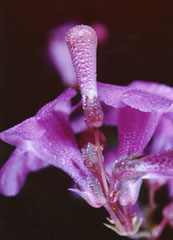
Jackie
is also the author of "Of
This Earth, Reflections on Connections," a book
of his photography and reflections that illustrate our profound
connections to the natural world.
|

![]()

